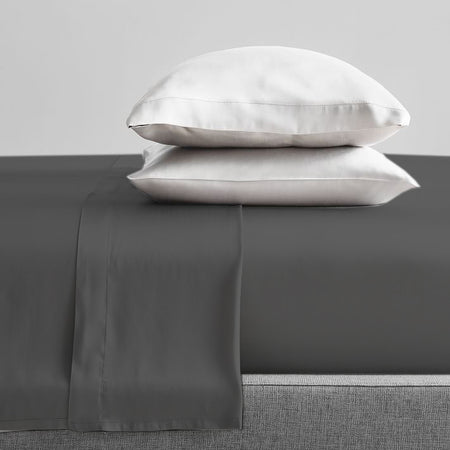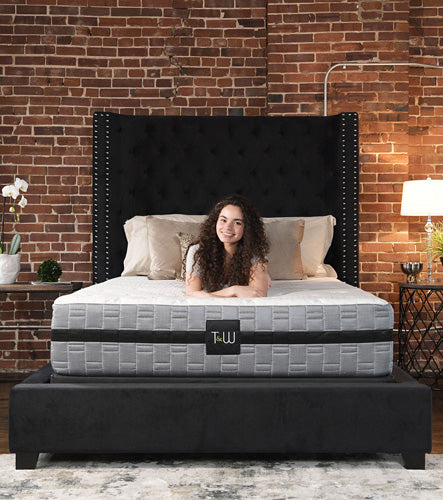If your back doesn’t ache, this article won’t be much help. To someone who hasn’t experienced how much trouble back pain can be, the whole subject is, in their opinion, exaggerated. They believe back pain is like having a sore leg or arm. They see it as a simple cause-and-effect type problem.
“You did x, so it hurts. Stop doing x, and it won’t hurt. Simple.”
Even if they don’t blurt it out loud, you know that’s what these very lucky people are thinking. They have no idea how scary it is to get out of bed when you don’t know if this time it’s going to cause shooting pain or if it’s going to be a little twinge. Even just rolling over can be a game of Russian Roulette.

Back pain is a bit of a medical mystery. Of course, there are known causes, but every single case can be a witch’s brew of variables. It could be a pinch of sciatica pain here, a tidbit of tension there, and then spiked with a hint of arthritis on top. Trying to pin down a specific cause can be like throwing darts at a dartboard in the dark.
Back Pain Facts
According to the NIH (National Institute of Neurological Disorders and Stroke) –
“If you have had lower back pain, you are not alone. Back pain is one of the most common reasons people see a doctor or miss days at work. Even school-age children can have back pain.”
Risk Factors For Developing Back Pain
- Your age – Low back pain usually first appears between 30 and 50 years old. As the years advance, the probability increases. Bone loss due to osteoporosis often leads to fractures, while at the same time, our muscles become less elastic. In addition, the discs between our vertebrae eventually decrease their ability to cushion the spine.
- Fitness level – The less physically fit we become, the more likely it is we will develop lower back pain. Back injuries can occur when regular exercise is ignored, and we strain ourselves during weekend warrior activities.
- Weight gain – The older we get, the fewer calories we need, so even if we don’t overeat, eventually, we will gain weight because of our slower metabolism. Extra weight puts strain on the back, and weaker abdominal muscles don’t support the spine.
- Psychological factors: Stress, mood swings, and depression can increase our chances of experiencing back pain.
Preventing Low Back Pain

- Regular exercise – Begin slowly and work your way up according to your own pace after consulting with your physician. There are many low-impact activities that you can use to tone your muscles and increase your flexibility. The sooner you start, the better. A slow, steady approach is more likely to succeed than trying to do too much, too quickly.
- Body weight – Small, convenient changes that you can get used to will help you maintain a healthy weight according to your body type. Often, as we get older, our weight stays the same, but our BMI (Body Mass Index) creeps up, and the ratio of fat to muscle changes.
- Ergonomically correct furniture – Both at home and at work, take the time to select an ergonomically appropriate environment.
- Switch positions – Whether you’re sitting or standing, switch positions often to shift your weight and even out the work your muscles and spine are asked to do.
- Choose the right mattress – Compared to just a few years ago; there are dozens of different mattress types, materials, and configurations you can choose from. Take the time to choose carefully. After all, restful and restorative sleep is too important to take lightly.
What Harvard Medical School Says About Back Pain and Mattresses
Years ago, doctors often recommended very firm mattresses. Somehow this view caught on, and many people still believe this approach is correct. However, research conducted with people with low back pain sleeping on a variety of firmness levels contradicts this.
According to the study, those who slept on very hard mattresses had the poorest quality of sleep. Those who slept on firm and medium firm mattresses experienced no difference between the firmness levels.
In contrast, soft mattresses were shown to be problematic. Softer mattresses do indeed conform to your body’s natural shape. They are also better at helping the joints align favorably. The problem is when the mattress is too soft for your body weight, and joints might twist and become painful during the night.
Finding the Goldilocks Mattresses Isn’t Easy
The solution may sound simple, but it’s not. Yes, mattresses are often clearly labeled according to their firmness level. In an ideal world, you should be able to follow the research and pick a soft or firm mattress for lower back pain.
In reality, every manufacturer chooses their own interpretation of firmness. And just to make things even more confusing, our own bodies are different. Someone who is lighter in weight may find a medium firm mattress to be just right, while the very same mattress from someone carrying more weight may find it too soft.

Hybrid Mattresses Come To the Rescue
Imagine no more tossing and turning. No more aches and pains. Thankfully, mattress technology and materials have advanced in the last few years. So much so that today, you can find a mattress that perfectly fits your needs in stock at a store that, years ago, would have to be completely custom-made.
Mattress toppers are an option; however, many latex mattresses and memory foam mattresses have different firmness layers to provide lumbar support as well as cushy comfort on top.
Many of today’s mattresses don’t require a box spring. Instead, you can choose a bed frame that adjusts positions with a remote control. The ability to combine appropriate support in the inner structure, along with a soft and plush top layer, makes finding the right mattress much easier.
Put Your Mattress To the Test
Choosing the right mattress can be confusing and overwhelming. However, once you can wake up refreshed, it will all be worth it. Do your research before you make a final choice. And most importantly, find a sleep expert you can trust.
Shop around until you come across someone who will answer all your questions and takes the time to match your sleeping position with the correct mattress. It makes a difference whether you are a side sleeper or a stomach sleeper. The best mattress experts will encourage you to take advantage of a sleep trial period.






















